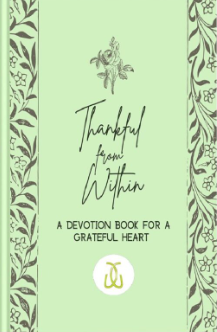Business, Financial, OFW, Working class
Life Insurance Company
The Benefits of Life Insurance
Are you trying to find a life insurance provider where you may purchase a policy?
It’s crucial to look into the financial health of the insurance provider before picking them to purchase your life insurance policy. Following the terms of your insurance policy, will the business be able to pay the benefits? Or their financial situation may already be precarious, making it possible that they won’t receive the insurance policy benefits. You can at least get a sense of whether an insurance firm has enough assets to satisfy its liabilities by looking at its “net worth.” Additionally, it indicates a more significant likelihood that they will be able to cover their insurance claims—holders of policies.
Nobody can foretell the future or anticipate a hassle- or problem-free existence. But in the event of uncertainties, we all want to feel a little more secure. For instance, a father who supports his family financially might want to ensure that, in the event of his passing, his family will still be able to afford their essentials like housing, food, and education. This is why a person should choose trustworthy life insurance that is also reasonably priced. Because even insurance firms can fail, we suggest solid life insurance. Additionally, there’s a chance they closed or declared bankruptcy before you could use your insurance.
Minutes to Read: 16 minutes
Age Bracket: 18-50 years old

It is not unexpected that many people choose not to purchase life insurance because they fear it will be difficult, costly, or force them to confront their mortality (or an insurance agent; same idea). Because of this, many people who should have life insurance don’t, and many people who do have it don’t need it or have the wrong kind. By reading this article, you may determine whether you need life insurance, how much you should have, and what form of coverage would be the most suitable for you.
The following list contains the top queries regarding life insurance. They should help you decide whether you need insurance and how to get it at a fair price. You can also read through a more comprehensive understanding of the subject.
- How Does Life Insurance Work and What Is It?
- Types of Life Insurance
- FAQs on life insurance
- Should You Pick Health Insurance Or An HMO For Your Family?
How Does Life Insurance Work and What Is It?
A contract for life insurance is formed between a person and the insurer, and the person agrees to pay the monthly insurance premiums. These monthly payments (premiums) are made in exchange for a lump sum payment that will be given to the person’s beneficiaries—their children, other family members, charity organizations, etc.—after their passing.
Let’s define a few essential terminologies related to life insurance to understand better how it functions.
- The contract between the insured and their insurance provider is known as the
- Premiums: The sum the insured person must pay to the insurance provider each year or month to maintain their policy.
- The person who buys an insurance policy is the
- Death benefit: The sum of money or assets given out once the policyholder passes away.
- Beneficiaries: The person(s) eligible for the life insurance policy’s death benefit.
Who needs to purchase life insurance?
You could require life insurance if your passing put someone else through financial hardship. If not, you most likely don’t need life insurance, which is perfectly acceptable. You might be a trailblazer, bravely carving out your way, or you might be a college student, a single parent without children, retired, and your loved ones are taken care of or financially independent. A homemaker with an income-earning spouse and just one child won’t likely need as much insurance as someone who is the primary provider for numerous children. The dependents are the main focus. However, the homemaker still needs insurance to pay for the loss of the free services they offer.
What advantages does life insurance offer?
According to estimates for 2019, 16.6 million Filipino individuals, or 23% of the adult population, have insurance. Adults between the ages of 40-49 who are married, widowed, or working and own businesses are far more likely to purchase insurance. Almost one-third of these adults are more likely to be insured than other categories. The survey results also suggest that women are more likely than males to own insurance. The incidence of insurance ownership is significantly lower among the youngest group, which includes unmarried, unemployed, and business-ownerless individuals. While individuals who are unemployed and do not own a business are twice as likely to lack insurance as those who are employed and business owners, respectively, are just 5% of adults aged 15 to 19 and 9% of single people.
Types of Life Insurance
The most prevalent form of insurance carried by adults is still life insurance (39%); this is especially true for upper-class, middle-aged, and employed adults. The following insurance policies are fire insurance, auto insurance, combined life and non-life insurance, and accident insurance.
Reasons Why One Does Not Have Insurance.
Budgeting continues to be the biggest obstacle to insurance, with 64% of the 55.5 million people without insurance citing this as their main issue. Some adults in Metro Manila and metropolitan areas and those between the ages of 15 and 29 do not believe that insurance is necessary. In contrast, others argue that it is too expensive. Other explanations include the insurance industry’s delayed recovery and a significant increase in consumers’ mistrust of service providers since 2017. Adults in the upper and middle classes and those living in South Luzon are significantly more likely to give these two reasons.
FAQs on life insurance
It takes a lot of investigation and thought to identify the insurance plan that best suits your requirements and financial constraints. We’ve listed and addressed some frequently asked questions about life insurance below to give you a head start.
Why obtain life insurance?
Generating income and financially providing for your loved ones is your most significant asset. A life insurance policy is a method to demonstrate your concern for those who rely on you and your desire to ensure their financial security. We frequently consider what our families will require in terms of material goods if we can no longer provide for them when choosing a policy. We do not, however, take into account intangibles. Life insurance helps us keep commitments, fulfill obligations, and plan financially for the unexpected by covering both tangible and intangible assets.
When is the ideal time to purchase life insurance?
There is no one-size-fits-all moment to make this crucial financial choice regarding life insurance. Although obtaining a policy when younger can result in lower rates, more coverage, and less concern about your health, buying a policy is generally not age dependent. Events in your life that affect others, like getting married or having a child, occur.
What kind of life insurance ought you purchase?
Choosing among the many life insurance options might not be easy. A term policy can be your best choice if your resources are constrained or you need coverage for a short time. A permanent policy can be desirable if you have the financial resources and want life insurance that lasts as long as you do. The person who can assist you in making this choice may be your financial advisor.
Term life insurance: What is it?
Term insurance is a contract that changes over time. Intended to provide coverage should you pass away within a predetermined period and is the most basic type of life insurance. Policyholders like the relatively cheaper cost compared to permanent insurance and the ability to tailor the length of the policy to their own needs, making it an excellent choice for those who want comprehensive coverage but may be on a tighter budget. For instance, you can determine the amount the policy will need to cover and when it has to expire if your objective is to ensure that your children have enough money to pay for college and graduate school.
What are the term life insurance’s restrictions?
The word “term” contains the most significant restriction. You lose your life insurance coverage when your term policy expires. Term insurance doesn’t have a cash value component, either. What choices are available when your term life insurance policy expires? Three alternatives are available. Letting go is the first step. If you don’t renew the policy, it will expire automatically. The second option is to restore it but be ready to pay a higher premium that may involve a medical exam and will likely increase annually. The third option is to convert it during the policy’s initial years. You may be able to convert your insurance if it has a convertible clause.
❓ What if my health isn’t ideal? Do I still qualify for life insurance?
❓ Suppose I smoke?
❓ What companies offer life insurance?
❓ Where Can I Find Life Insurance Quotes?
Nothing is more responsible for your financial future than being ready for anything, which includes setting aside money for long-term care insurance. Use our pricing guide for long-term health insurance to get the answers to frequently asked questions like, “What is long-term care insurance?” What is the cost of long-term care insurance? What is covered by long-term care insurance? You may get information on how to get the best long-term care insurance coverage for your budget and the typical long-term care premiums here.
Should You Pick Health Insurance Or An HMO For Your Family?
A safety net is provided by health insurance if faced with high medical costs. But in the Philippines, not many people have enough insurance. An investment like private health insurance might easily consume a sizable chunk of a typical Filipinos monthly income. Most people settle with what’s most inexpensive instead of what they need because of its cost. While PhilHealth is a massive asset in lowering medical costs, its coverage is insufficient for long-term hospital stays and serious illnesses requiring costly treatments and operations.
Medical insurance options available in the Philippines
Because of this, even if the government recently made a move to make PhilHealth membership more inclusive, the truth still stands that signing up for private health insurance will give you a more reliable financial safety net against unexpected medical problems. Health Maintenance Organizations (HMO) and health insurance plans are the two types of private health insurance available in the Philippines. Although they aim for the same outcome, they approach service delivery differently. Each offers its advantages, but depending on your circumstances, they function differently.
Which should you choose, then? The following three medical insurance options are available in the Philippines:
1. Philhealth
The government-run health insurance company is called PhilHealth. It is a reasonable and forward-thinking insurance scheme that provides financial support to all residents seeking medical care, regardless of employment status. All employees are required to join, and the employer covers half of each employee’s monthly contribution while deducting the other half from their pay. Depending on the ailment, it will provide its members with varying financial support.
Check out our in-depth coverage of PhilHealth to learn more and discover the perks it offers members.
2. HMO
HMOs, or health maintenance organizations, are private companies that offer health insurance, but they only let you see doctors in their network. Plans are typically thorough and adaptable but are only available up to a particular sum annually—the annual allowance increases in proportion to the premium the business or individual is paying.
HMOs initiatives like
✔️ both inpatient and outpatient care
✔️ surgeries
✔️ additional treatments, including prescription drugs and lab testing
In the Philippines, well-known HMO providers include Fortune Care, Intellicare, Medicard, and Maxicare. Employees of private enterprises frequently receive this in addition to their PhilHealth membership contribution.
3. Health Insurance
In the Philippines, private health insurance is often purchased freely by the individual. Private health insurance provides access to private healthcare networks that are much more extensive and offer much more than HMOs do. Certain businesses provide their employees with this kind of insurance. The insured person pays all the premiums, which might be very high. The policy can also cover immediate family members at an additional expense. Private insurers provide a variety of advantages and features. Most of the time, their facilities meet or exceed international requirements, and some even apply their policies outside.
The following benefits of this insurance could apply
✔️ Both inpatient and outpatient care
✔️ Surgical aid and hospitalization
✔️ financial support for lost wages because of an injury or sickness
✔️ additional treatments, including prescription drugs and lab testing
✔️ greater monetary compensation based on the sickness
In the Philippines, well-known corporations include Sun Life, AXA, Prudential Life, and Manulife. You may also compare health insurance companies on our website for easy reference.
What coverage do they provide?
While all of these health insurance companies in the Philippines have the same objective: to pay for the medical costs of their policyholders or members, how or via what channel they deliver their services varies.
What is their price?
Your income range and coverage affect the contribution rates. The economy may also cause changes to monthly premiums.
PhilHealth: Click here to get the most recent PhilHealth Contribution Table.
HMO: Click here to compare HMOs and health insurance companies.
Private Health Insurance: See this page for a comparison of HMOs and health insurance companies.
Which kind of insurance is recommended for you?
Each of these insurance policies has advantages of its own. While they may each function differently in helping to cover your medical costs, they might complement one another to lessen your financial burden further. All three may be more expensive, but they can be your safety net if you and your family face a terrible sickness that necessitates costly medical care and ongoing maintenance.
Each of them has particular strengths:
- For urgent requirements and crises, use an HMO. If you become unwell, you must show your HMO card to any (qualified) clinic or hospital, and you won’t have to pay anything to receive the care you require.
- Because they offer more compensation, health insurance provides better and more comprehensive coverage of severe illnesses. Long-term hospital benefits are more expensive treatment and medical procedures. The affiliating investments and conventional plans are merely a perk.
- All people who are employed automatically have PhilHealth. Z-benefits, in particular, can help reduce your costs for essential illnesses, even if they may not offer as much as HMOs and commercial health insurance policies.
Purchasing both will benefit you more in the long run if you have sufficient resources. But if your financial situation forces you to pick just one, it will all come down to the coverage. Do you want hassle-free access to healthcare services whenever you need them without paying anything for health insurance? So choose an HMO.
Health insurance policies are the way to go if you’re willing to pay more, work on a reimbursement model in exchange for lifelong coverage, and build up an investment portfolio on the side.
Make sure you balance proper coverage and a reasonable premium, whichever plan you choose.
MUST-READ AND SHARE!
2023 Your Practical Wedding Guide
Your Ultimate Access to Kuwait Directories in this COVID-19 Crisis
Investments and Finance Ultimate Guide
OFW FINANCE – Money News Update that you need to read (Table of Contents)
A Devotional for having a Grateful Heart
Stock Investment A Beginner’s Guide
How To Save Money Amidst Inflation
Philippines Best Banks with High-Yield Savings Return
Essentials Before Applying For a Credit Card
Credit Card Starter Guide for Beginners
If you like this article please share and love my page DIARYNIGRACIA PAGE Questions, suggestions send me at diarynigracia @ gmail (dot) com
You may also follow my Instagram account featuring microliterature #microlit. For more of my artworks, visit DIARYNIGRACIA INSTAGRAM

A multi-award-winning blogger and advocate for OFWs and investment literacy; recipient of the Mass Media Advocacy Award, Philippine Expat Blog Award, and Most Outstanding Balikbayan Award. Her first book, The Global Filipino Bloggers OFW Edition, was launched at the Philippine Embassy in Kuwait. A certified Registered Financial Planner of the Philippines specializing in the Stock Market. A recognized author of the National Book Development Board of the Philippines. Co-founder of Teachers Specialist Organization in Kuwait (TSOK) and Filipino Bloggers in Kuwait (FBK). An international member of writing and poetry. Published more than 10 books. Read more: About DiaryNiGracia
Acknowledgements
DISCLAIMER




Peace and love to you.